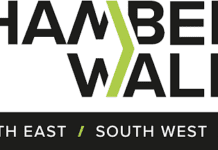
By Mark Jones, director of Carmarthen-based Clay Shaw Butler chartered accountants and business consultants.
HMRC have made improvements to the online renewal service and recommend claimants renew their claim online once they receive their renewal pack which is issued between April and June.
The online service can now accommodate all changes in circumstances (working hours, childcare costs or income) which affect the amount of someone’s entitlement.
Nick Lodge, HMRC’s Director General, Benefits and Credits, said:
“Our online service means that you can renew at any time of the day or night, and on any device, without having to call us. Online help can also answer most queries you may have and a web chat facility will be available to support people renewing online. We urge everyone who can to go online.
“Our customers should check their details and renew early to ensure they get the right money. The sooner people renew their claim, the sooner we can check payments are correct, meaning we avoid paying too little money, or too much, which claimants then have to pay back.”
This year, claimants renewing online will be able to access further information, including viewing their next payment, through their own online Personal Tax Account.
The deadline for people to renew their tax credits is July 31. Failure to renew before the deadline will mean payments are stopped and they may have to repay the money they have received since April.
Claimants can get help and information on renewing tax credits:
- On GOV.UK at https://www.gov.uk/browse/benefits/tax-credits
- By tweeting @HMRCcustomers or posting on our Facebook page with general queries
- Through HMRC’s web chat service available on GOV.UK
- By calling the tax credits helpline: 0345 300 3900
- Customers can access their personal tax account at https://www.gov.uk/personal-tax-account
- Follow HMRC’s Press Office on Twitter @HMRCpressoffice
- HMRC’s Flickr channel: www.flickr.com/hmrcgovuk
Meanwhile, news of expenses and benefits for employees.
The forms P11D, and where appropriate P9D, which report details of expenses and benefits provided to employees and directors for the year ended 5 April 2016, are due for submission to HMRC by 6 July 2016.
The process of gathering the necessary information can take some time, so it is important that this process is not left to the last minute.
Employees pay tax on benefits provided as shown on the P11D, either via a PAYE coding notice adjustment or through the self assessment system.
In addition, the employer has to pay Class 1A National Insurance Contributions at 13.8% on the provision of most benefits. The calculation of this liability is detailed on the P11D(b) form. The deadline for payment of the Class 1A NIC is 19th July (22nd for cleared electronic payment).
HMRC produce an expenses and benefits toolkit. The toolkit consists of a checklist which may be used by advisers or employers to check they are completing the forms correctly.
If you would like any help with the completion of the forms or the calculation of the associated Class 1A NIC please get in touch with us at Clay Shaw Butler.
The toolkit is available online at –
In other news, a new savings allowance is available to basic and higher rate taxpayers for 2016/17. The amount available depends on the individual’s circumstances:
If any of the individual’s income for the year is additional rate income then the individual’s savings allowance for the year will be nil.
If any of the individual’s income for the year is higher-rate income and none of the individual’s income for the year is additional rate income, the individual’s savings allowance for the year is £500.
If none of the individual’s income for the year is higher rate income, the individual’s savings allowance for the year is £1,000.
No tax will be payable on savings income until the new savings allowance has been used up.
In a further change, banks and building societies will no longer deduct tax at source from interest at 20%. This means that non-taxpayers will no longer need to fill out an R85 to receive bank and building society interest gross. However, companies will still need to account for 20% at source on payments of interest.
The 0% savings starting rate also remains available on the first £5,000 of taxable savings income for those with the correct split of income. This would apply where non savings income, broadly pay, trade profits and property income are no more than the personal allowance. This means that for some, the effect of the personal allowance (£11,000 for 2016/17), the £5,000 starting rate band and the new savings allowance (£1,000 for basic rate taxpayers for 2016/17) means that it may be possible to receive up to £17,000 savings income tax-free in 2016/17.
In light of the above changes please contact us at Clay Shaw Butler if you would like to review your tax position on savings income.
You can find out more about money matters on the Clay Shaw Butler website (under our news for business section) –
http://www.clayshawbutler.com/news/latest-news-for-business
We have a strong and experienced team with great local knowledge all geared-up to helping you get the very best from your finances – whether that is as an individual or as a business.
We stay ahead of the game by putting great store by continual professional development for our staff.
With Investors In People status at Clay Shaw Butler, we care passionately about making sure our staff have all the tools they need to serve you, our customers.
Weblink –http://www.clayshawbutler.com
The team at Clay Shaw Butler can be contacted on 01267 228500.
The team at Clay Shaw Butler are on Twitter. Look for @clayshawbutler.

|
| Help keep news FREE for our readersSupporting your local community newspaper/online news outlet is crucial now more than ever. If you believe in independent journalism,then consider making a valuable contribution by making a one-time or monthly donation. We operate in rural areas where providing unbiased news can be challenging. |























